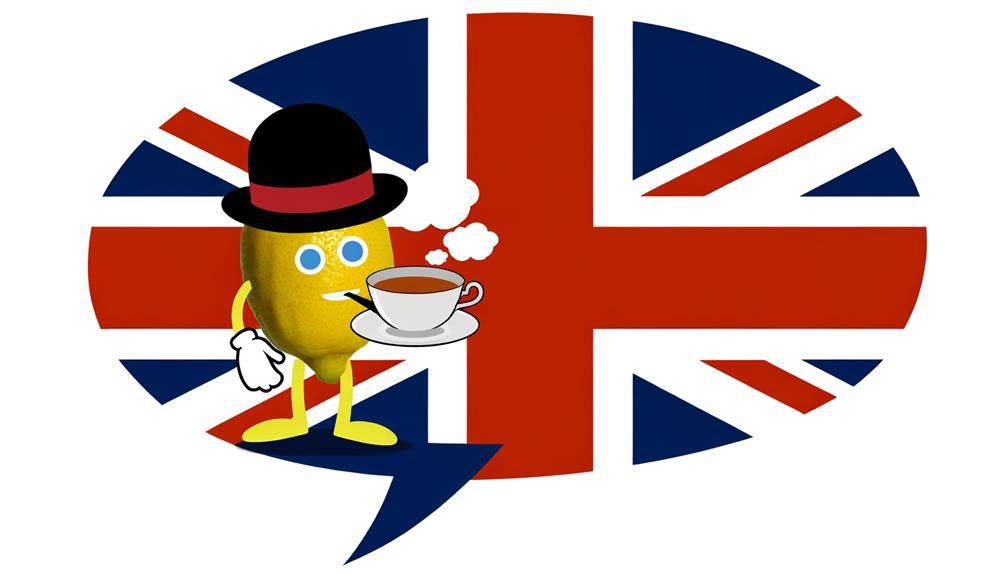In British slang, 'tart' has evolved considerably since its early 19th-century origins. Initially emerging from English vernacular with endearing undertones, its transformation into an insult mirrors changing societal norms and language use. This shift from affection to derogation encapsulates broader linguistic patterns and cultural contexts, reflecting changing attitudes towards gender and decorum. Modern adaptations see 'tart' straddling lines between playful teasing and more pejorative uses, heavily influenced by regional dialects, media depiction, and public perception. Its application varies greatly across different social and cultural landscapes, revealing the intricate relationship between language, society, and evolving gender dynamics. Exploring further uncovers the nuanced trajectory of 'tart' within British slang.
Origins of "Tart"
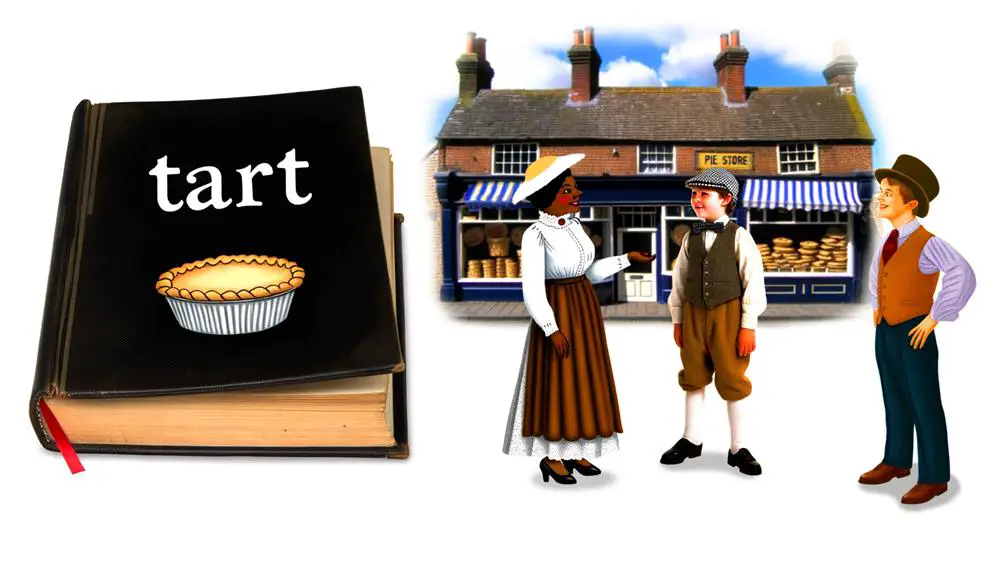
Historically, the term 'tart' has evolved considerably from its original usage, tracing back to the early 19th century as a British slang for a woman perceived as morally loose or promiscuous. Its linguistic roots are deeply embedded in the rich tapestry of English vernacular, offering a fascinating etymological comparison with other contemporaneous slang. The word 'tart,' initially a diminutive form of 'sweetheart,' underwent a semantic shift, reflecting societal attitudes towards women's sexuality and moral standards. This semantic evolution is emblematic of the fluid nature of language, where words accrue new meanings over time, influenced by cultural, social, and historical contexts.
An etymological comparison with similar terms reveals a pattern of linguistic transformation where benign terms acquire derogatory connotations. For instance, 'mistress,' once a neutral term for a woman in authority, has similarly evolved to imply a morally dubious relationship. This comparative analysis underscores the impact of socio-cultural dynamics on language evolution. The shift in 'tart's' meaning, from endearment to insult, illustrates the complex interplay between language and societal values, highlighting the role of linguistic expressions in both reflecting and shaping cultural norms and attitudes toward gender and morality.
Evolution Over Time
You must now consider how the term 'tart' has shifted from its historical origins to modern adaptations within British slang.
This transformation reflects broader linguistic patterns and the evolving social contexts in which slang operates.
Analyzing this evolution provides insights into the dynamics of slang as a form of cultural expression, highlighting its role in mirroring and shaping social identities and norms.
Historical Origins
The term 'tart,' with its current connotations in British slang, has undergone a significant evolution from its origins, reflecting shifts in societal attitudes and language use over centuries.
Initially, its etymology traces back to the Old English word 'teart,' meaning sharp or sour, a descriptor for taste. However, as cultural influences and language migration shaped the British lexicon, 'tart' began to accrue layers of meaning, particularly in the domain of social interaction and character assessment.
This transformation illustrates a broader linguistic phenomenon where terms evolve beyond their original descriptors to embody complex social nuances. The interplay between cultural shifts and the migration of language across geographies and communities led to 'tart' acquiring a nuanced position within British slang, embodying both derogatory implications and a reflection of changing social mores.
Modern Adaptations
Over time, 'tart' has evolved beyond its original taste-related meaning, reflecting broader societal changes and attitudes toward language and behavior. This evolution is notably marked by its adaptation in the context of clothing influence and international spread.
In modern vernacular, 'tart' often connotes a judgment on one's attire, suggesting a provocative or flamboyant style that deviates from conventional norms. This linguistic shift illustrates the complex interplay between language, fashion, and societal values, where clothing becomes a key indicator of moral and social standing.
As British culture and media have permeated global boundaries, 'tart' has found a place in the lexicons of diverse communities, undergoing further adaptations. This international spread highlights the dynamic nature of slang, continuously shaped by cultural exchanges and global communication networks.
"Tart" in Modern Language

In contemporary usage, 'tart' has evolved beyond its original connotations, reflecting a broader spectrum of meanings that range from playful teasing to pejorative use, depending on context and intonation. This linguistic diversity underscores the complexity of the term within modern language, highlighting its capacity to convey a wide array of emotions and intentions. The cultural implications of 'tart' are significant, since its usage can reveal much about societal attitudes towards sexuality, gender, and morality.
When employed in a lighthearted manner, 'tart' might serve as a form of endearment or playful ribbing among friends. However, when used pejoratively, it can perpetuate stereotypes and contribute to the stigmatization of certain behaviors or lifestyles.
Analyzing the term's application reveals how language evolves in response to changing social norms and values. The dual nature of 'tart'—both an insult and a term of affection—exemplifies the fluidity of slang and its role in mirroring the complexities of human relationships and societal dynamics. Therefore, understanding its usage provides insight into the ongoing negotiation of meaning within communities, illustrating how words can both challenge and reinforce cultural norms.
Regional Variations
Exploring regional variations reveals that 'tart' can adopt unique connotations and intensities depending on the cultural and linguistic context within which it's used. The dialect influence is profound, dictating not only the word's meaning but also its emotional resonance across different British regions. In some areas, 'tart' may carry a relatively benign or even affectionate tone, while in others, it might be considered deeply offensive. This disparity underscores the importance of understanding not just the word itself but the regional dialects that shape its usage.
Slang migration plays a significant role in how 'tart' is understood and employed across the UK. As people move from one area to another, they bring their linguistic habits with them, contributing to the evolution of the word's meaning in new environments. This phenomenon can lead to a blurring of the original regional distinctions, creating a more homogeneous national understanding, or it might reinforce regional identities by highlighting the unique linguistic features of different areas. Consequently, the study of 'tart' within the context of regional variations provides invaluable insights into the complexities of British slang and its intricate relationship with local dialects and cultural identities.
Connotations and Context
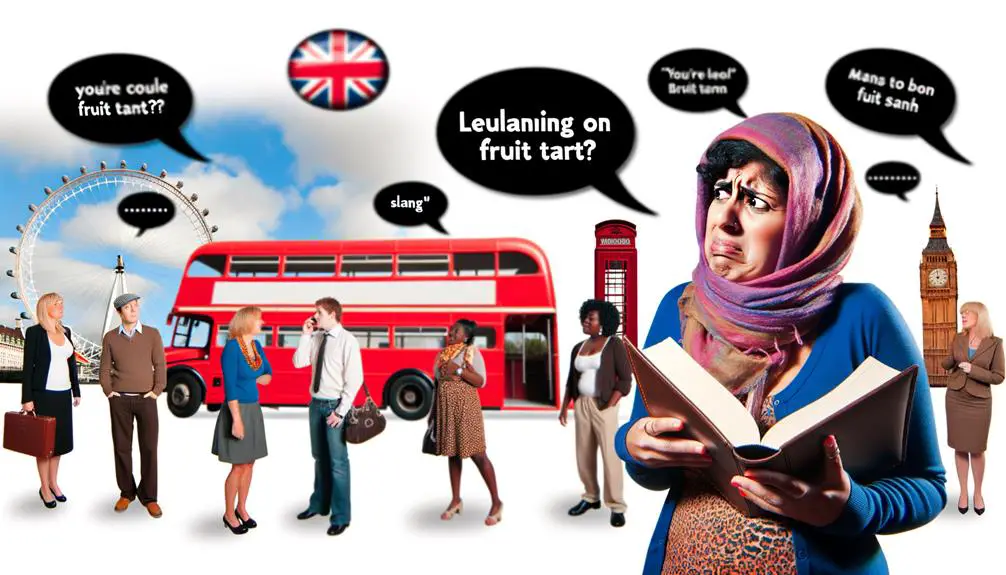
Understanding the connotations and context of 'tart' requires delving into how its usage reflects societal attitudes and norms. The term, often mired in controversy, can serve as a mirror to the social dynamics and gender perceptions prevalent within British culture. Its application isn't merely about labeling someone based on their appearance or behavior; it's intricately linked with societal expectations and the often unspoken rules governing decorum and morality.
The usage implications of 'tart' are vast, affecting not only the individual who's labeled but also those within their social sphere. It can perpetuate stereotypes, reinforcing negative images and potentially leading to social ostracization. The word's impact extends beyond the personal, influencing societal views on gender and sexuality, marking a significant social impact. In academic circles, analyzing the term 'tart' provides critical insights into how language evolves and reflects changing societal values.
Moreover, the differential application of 'tart' across various contexts underscores the fluid nature of slang and its power to both include and exclude, to define norms and challenge them. Understanding 'tart' within these multifaceted dimensions reveals much about contemporary British society and the ongoing dialogue between language, identity, and social norms.
Usage in Media
Building on the discussion of societal attitudes and norms, the depiction of 'tart' within media platforms showcases the intricate relationship between language, culture, and public perception. When media outlets employ 'tart' in their content, it often reflects and reinforces existing societal views. However, it's the celebrity endorsements that can pivot the term's connotation from negative to playful or endearing. Famous personalities, through their use of 'tart' in interviews or social media, contribute to its evolving interpretation. They hold the power to either perpetuate its traditional, pejorative meaning or to lighten its impact, illustrating the fluid nature of slang.
Furthermore, international translations of 'tart' in media content present a fascinating study in linguistic adaptation. The term's essence can be altered when translated into different languages, influencing how international audiences perceive the British culture associated with it. This variance in translation underscores the challenges of conveying slang across cultural boundaries and highlights the role of media in shaping global understanding of local dialects. The use of 'tart' in media not only reflects but also actively participates in the dialogue about language and identity, demonstrating the complexities of slang in a global context.
Comparative Slang Terms
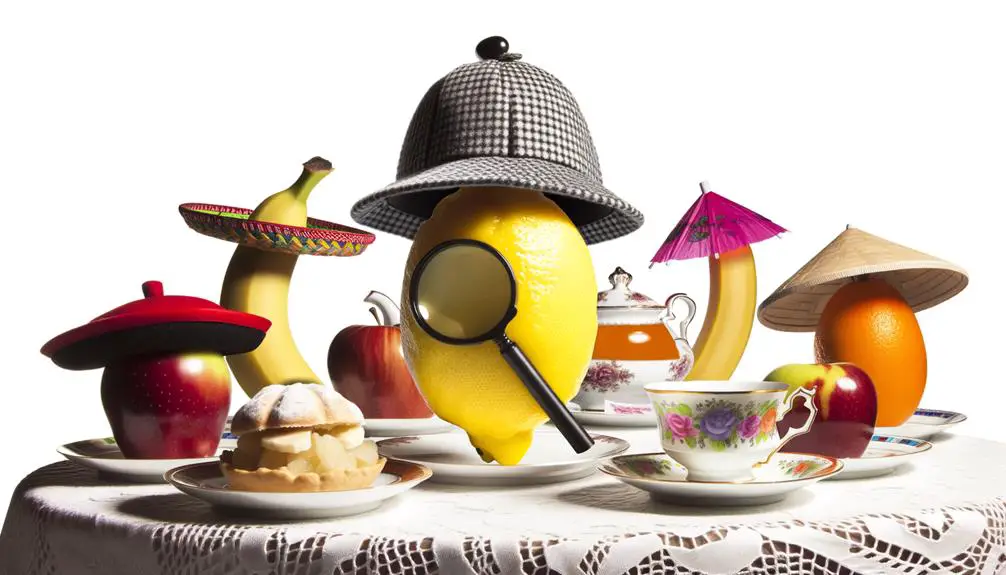
In the realm of linguistic diversity, it's crucial to explore how 'tart' aligns or diverges from slang terms with similar connotations in various cultures, offering insights into the nuanced perceptions of behavior and morality across societies.
When you delve into global comparisons, it becomes apparent that slang synonyms for 'tart' vary widely, reflecting cultural attitudes towards promiscuity and morality. For instance, in American English, terms like 'hussy' or 'floozy' serve similar purposes but carry their unique cultural baggage. In Australian slang, 'sheila' can sometimes veer into this territory, though it's generally less pejorative.
Analyzing these differences, you'll find that while the core notion of criticizing someone's sexual behavior remains constant, the intensity and moral judgment imbued in each term differ significantly. This variance underscores the importance of context and cultural sensitivity in understanding and using slang.
In addition, it highlights how language evolves and adapts, absorbing societal changes and attitudes towards gender and morality. Through these comparative analyses, you gain a deeper appreciation for the complexities of language as a reflection of societal values and norms, illustrating the intricate tapestry of human communication.
Public Perception
Reflecting on the comparative slang terms, it's evident that public perception of the word 'tart' and its equivalents varies markedly across cultures, underscoring the layered complexities of language and morality in societal contexts. This disparity in understanding illuminates the cultural impact these terms wield, shaping societal norms and expectations around gender and sexuality. The term 'tart', with its roots deeply embedded in British slang, serves as a lens through which social implications of language usage can be explored.
You'll find that in some regions, 'tart' is casually used, stripped of its historical weight, reflecting a society's progressive stance on reclaiming derogatory terms. Conversely, in other cultures, the word retains its full derogatory potency, highlighting the enduring influence of language on perpetuating gender stereotypes. This dichotomy points to the broader cultural negotiations at play, where language acts as a battleground for identity and respectability politics.
Moreover, the public's reception of 'tart' and similar slang reveals underlying power dynamics and societal values, demonstrating how language both mirrors and molds our perceptions of morality. It's an indication of the fact that words carry more than mere definitions; they're imbued with societal judgments and historical contexts that shape their reception and usage.
Controversies and Debates
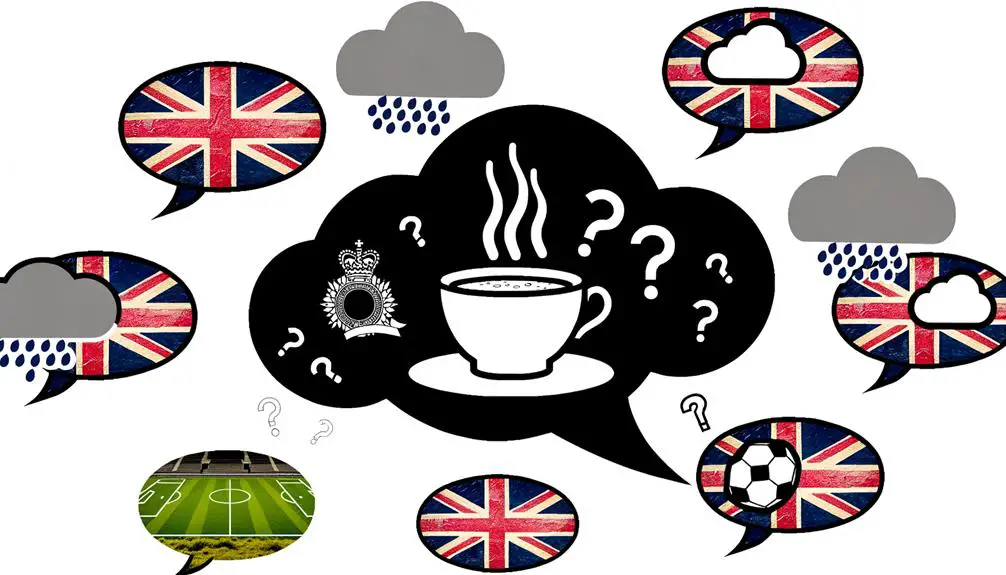
The use of 'tart' in various cultural contexts has sparked considerable controversy and debate, illustrating the complex interplay between language, gender, and societal norms. You've likely noticed how this term, historically referring to a sweet dessert, has evolved to carry a pejorative connotation when applied to women. This transformation highlights not only the fluidity of language but also its power to shape and reflect societal attitudes towards gender.
Critics argue that the application of 'tart' to describe women's perceived promiscuity or appearance perpetuates gender stereotypes and contributes to a culture of misogyny. This linguistic practice underscores the societal tendency to police women's sexuality and appearance, embedding gender implications deeply within the fabric of everyday communication. The controversy surrounding 'tart' points to broader societal debates about the impact of language on reinforcing or challenging existing power dynamics and gender inequalities.
The societal impact of terms like 'tart' can't be underestimated. They serve as a mirror reflecting societal attitudes and prejudices, while also actively shaping the discourse on gender. The debates around 'tart' encapsulate the ongoing struggle to reconcile evolving language practices with the pursuit of gender equality and respect for individual dignity.
The Future of "Tart"
Given the controversies surrounding the term 'tart' and its impact on gender discourse, it's imperative to explore its potential trajectories in contemporary language use. The evolution of language is a dynamic process, influenced by various socio-cultural factors, including digital communication and fashion trends. Tart emojis, as a recent development, play a pivotal role in this dialogue. Their usage in digital conversations can either perpetuate stereotypes or, conversely, contribute to a reclamation and neutralization of the term, depending on the context and intent behind their use.
Furthermore, the influence of fashion can't be underestimated in shaping the future connotations of 'tart.' Fashion has the power to subvert traditional meanings, transforming derogatory terms into symbols of empowerment. As designers and influencers adopt and adapt the term, it's possible we'll witness a shift towards a more positive or at least neutral perception of 'tart.' This rebranding through fashion could dilute its original pejorative sense, making it a term of endearment or an expression of individual style.
Frequently Asked Questions
How Does the Usage of "Tart" Differ Between British English and American English, Especially in Casual Conversations?
In British English, "tart" often has a derogatory connotation, while in American English, it typically refers to American desserts. This divergence stems from linguistic origins, affecting its usage in casual conversations across these cultures.
Are There Any Notable Pieces of Literature or Historical Documents That Showcase the Earliest Recorded Use of "Tart" in a Slang Context?
You're diving into a rich history, seeking the origins of "tart" in literature or documents. While tart recipes and preservation techniques are well-documented, pinpointing slang's first use demands a keen, analytical eye.
How Do Gender Dynamics Influence the Reception and Usage of "Tart" in British Slang, Particularly in Professional Settings?
In professional settings, gender stereotypes heavily influence the reception and usage of slang. Workplace etiquette often condemns such terms, as they reinforce negative biases and undermine equality, particularly affecting women's perceptions and opportunities.
Can "Tart" Be Considered a Term of Endearment or Affection in Any Specific British Regions or Contexts?
In certain circles, 'tart' evolves into an affectionate nickname, particularly within private, playful contexts. Regional dialects redefine its reception, transforming the term into a tender, albeit teasing, term of endearment in specific British regions.
Has the Slang Term "Tart" Been Adopted or Adapted by Any Other Languages or Cultures Outside of the Uk, and if So, How Has Its Meaning Changed?
Yes, the term "tart" has been adopted by other languages and cultures, undergoing linguistic evolution and cultural appropriation. Its meaning often shifts, sometimes losing its original connotation, reflecting the dynamic nature of language and culture.
Conclusion
To sum up, you've witnessed the astronomical journey of 'tart' from medieval kitchens to the pulsating heart of modern slang.
This chameleon word has danced through the English language, cloaking itself in new meanings, sparking fiery debates, and even tiptoeing into controversial territories.
Its adaptability is nothing short of miraculous, evolving faster than a shapeshifter in a moonlit saga.
As 'tart' continues to weave its way through our linguistic labyrinth, its future appears boundless, promising to dazzle and provoke in equal measure.

